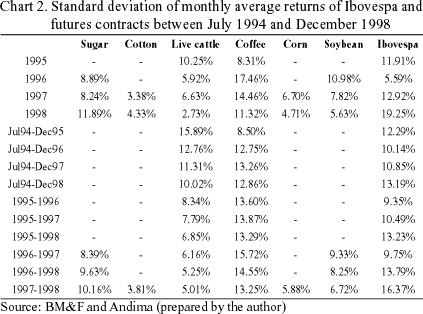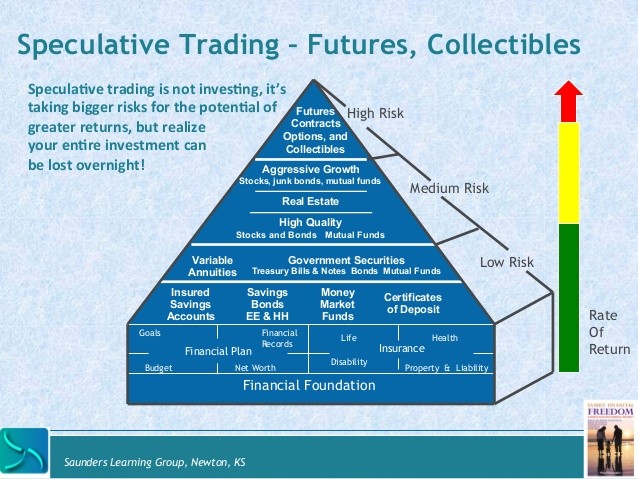Securities Futures High Risk Investments
Post on: 20 Апрель, 2015 No Comment

Are security futures appropriate investments for you? Learn more about the high risk investments and the role risk plays in financial planning.
Fri, 10/12/2012 | BY Adriana Reyneri
Do security futures, one of the most high risk investments available, have a place in your investment portfolio? That depends on your risk tolerance, a key component of financial planning, and your understanding of security futures contracts.
“Security futures involve a high degree of risk and are not suitable for all investors,” says the Financial Industry Regulatory Authority, the self-regulating agency that oversees the brokerage industry. As with all high risk investments, says FINRA, “if you don’t understand it, you shouldn’t buy it. You could lose a substantial amount of money in a very short period of time.”
A securities futures contract legally binds two parties to buy or sell a set number of shares of a company’s stock for a set price at a specified date in the future, says FINRA. What makes these securities futures contracts such high risk investments? Securities futures contracts require an initial payment, sometimes called a “margin payment,” to cover potential losses. This margin can be used to leverage a futures contract of much high value. According to FINRA, as the degree of leverage increases, so does the potential for large gains or losses over a short period of time.
A drop in stock price can trigger a margin call – a demand for investors to deposit additional funds into the margin account. If an investor is unable to meet a margin call, the brokerage firm may liquidate the securities futures position and hold the investor liable for any losses. “Because of the always-present possibility of margin calls, security futures contracts are not appropriate if you cannot come up with the additional funds on short notice,” FINRA said.

Trading security futures contracts can result in “potentially unlimited losses” and the dangers of these high risk investments can be compounded by trading halts, computer system failures, day trading strategies and illiquid markets, FINRA states.
When it comes to such high risk investments, FINRA says, “you should not risk any money that you cannot afford to lose, such as your retirement savings, medical and other emergency funds, funds set aside for education or home ownership or funds required to meet your living expenses.”
FINRA also advises investors contemplating high risk investments, such as security futures contracts, to do a thorough background check on prospective brokers.














